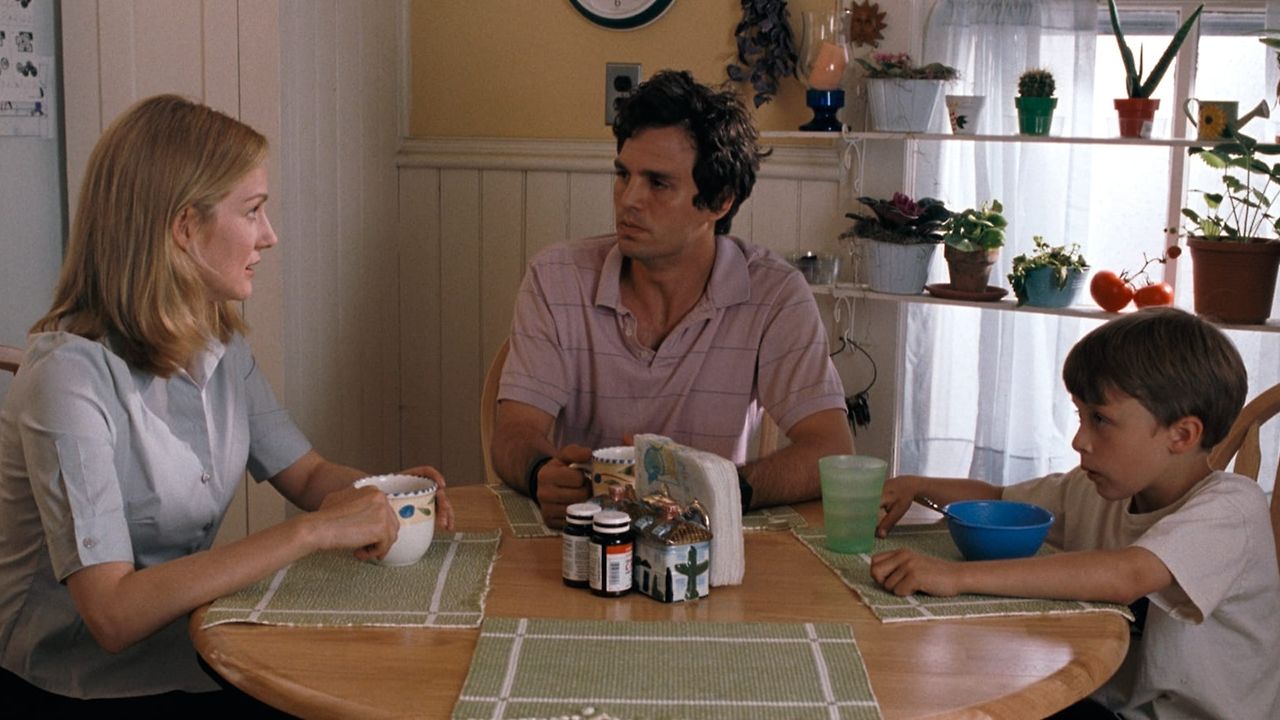That was very important to me, that he lets her know he’s not disappearing. The main thing that happens is that she couldn’t imagine pushing him out of her life in any form, but he’s so irresponsible with the kid. He’s loving with him, but he’s so like a baby himself that she’s just got to draw the line and he won’t stop. So she’s got to throw him out. I don’t know that even that’s going to stick, but just the fact that she’s willing to do it and she knows she’s taking the chance—she is very careful about how she does it. He says, “I’ll just leave,” and she says, “That’s not what I’m saying.”
I love that so much.
Yeah, me, too. I love the way Laura does it, because I think it’s probably about the hardest conversation she’s ever had to have, certainly with him. She is taking a chance. He’s somebody who’s very much on the edge and he’s very self-destructive, and he’s someone who might just decide to punish her and himself by not coming back or not coming back for years. He’s a bit infantile that way, which is why he’s trouble to have around the kids so much. But she just says, “You can’t live here if you’re going to act like this, and I can’t stop you, so you’ve got to go, but I’m not splitting up. I’m not throwing you out. And if you want to go, it’s up to you. I’m not saying that.”
His first impulse is to say, “Fuck you, I’m leaving forever,” and then he has that nice scene where he goes to the cemetery, and I discussed that with Mark. That was the first scene that we shot, and it’s a silent scene, but the idea of that little scene where he goes to the cemetery and sees his parents’ graves. It’s just really beautiful. Something happens to him on the hill where he decides he doesn’t want to wreck everything. It’s partly because it’s so pretty up there, and he’s somebody who really loves the outdoors and gets a good feeling from it, as he says about Alaska.
Then it’s also that it’s his home and he loves her, and he doesn’t quite have the infantile will to destroy everything because he knows he’s wrong anyway. Then the next to last scene is her being sure she’s blown it and that she’s never going to see him again, and she can’t stand it. Then he assures her that she will, and then it’s just really sweet because she needs to be taken care of herself. I don’t know. I don’t even think what I’m saying is quite what’s in the scene, but all those things are there, and I think it’s nice because she finally finds the will or the strength or the necessity of drawing some boundaries with this impossible person.
She sees that she was right to bet on him in the first place, because he does bounce back and say it’s okay. He’s also, like, “I can’t live here, but it doesn’t mean I’m never coming back,” so they both find somewhat of a middle ground. I think that’s what you find with people as you get a little older. When you’re in your twenties, or at least when I was, you’re, like “This is my territory and I need this for these relationships, and I won’t stand for less than this.” Or you yield too much territory if you’re another kind of person.
When you’re 30, you’re, like, “Why did I just give into all that shit for the last ten years, and who was I trying to please anyway?” When you get a little older, with the relationships that work out, you have to find places where the conflict is not going to be resolved by blasting through it. You interact and there are areas where the interaction is working, and then other ones where there are going to be rough patches, but you don’t have a tantrum every time somebody doesn’t fold the laundry or every time someone folds the laundry and you didn’t want them to or whatever it is, or bigger things than that.


